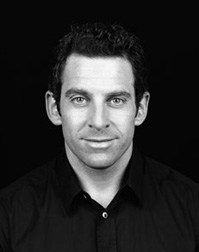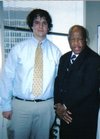Thank you, Dr. Weber, Congressman Downing, Congressman Whitehurst, Congressman Daniel, Mayor Hill, members of the executive committee, ladies and gentlemen:
It's truly a great honor for me to be the first President of the United States to address this Southern Baptist Convention. I recall with great interest the last time I was introduced at an event sponsored by the Southern Baptists. It was a Brotherhood Commission prayer breakfast in Dallas almost exactly 2 years ago, when I was Vice President. The man introducing me was very considerate, very generous in his remarks, and very friendly. I was introduced as a man with "an open mind and a compassionate heart," and today, I would like to return that compliment to the gentleman who introduced me then-Governor Jimmy Carter.
The honor you have paid me with the invitation to speak at this convention is very special to me in a very personal way. Although our religious denominations are different, I have long admired the missionary spirit of Baptists and the fact that you strive to keep the Bible at the center of your lives. I also respect and appreciate your commitment to health care and educational advancement of your fellow citizens, as exemplified by the many hospitals, universities, and seminaries supported by Baptist churches. My oldest son, Mike, who is now a divinity student at Gordon-Conwell Seminary in Massachusetts, was graduated from the Baptist-affiliated Wake Forest University. And it was my pleasure 4 years ago to be the speaker at his graduation ceremony.
We meet today in a year of historic importance and national celebration-the Bicentennial Year of American independence. Even as your denomination has grown from fewer than 500 people in America, at the beginning of the 18th century, to almost 13 million today, Baptists have played a very fundamental part in the birth and growth of America.
An early champion of religious freedom--which the great Baptist minister, George Truett, once called "the supreme contribution of the New World to the Old"--was Roger Williams, founder of Providence, forerunner of Jefferson, and giant among Baptists. The principle of democracy itself was rooted deeply in the Baptist Church long before there was a United States of America. Thomas Jefferson so admired the Baptist form of church government that he called it "the purest democracy in the world."
Abraham Lincoln's mother, a devout Baptist, was perhaps the most important and enduring influence in the memorable life of her son, implanting in him a deep faith in God and always encouraging him to "be somebody." History gives us many, many more examples of profound Baptist influence on American life, a tradition still being enriched today.
Billy Graham came from your ranks to become one of today's most influential Christian evangelists and one of the most admired men of our time. Brooks Hays, twice the president of this convention, a former colleague of mine in the House of Representatives, and a very dear friend, has stood through his distinguished career as a man of courage and a man of conviction, a man of towering moral strength, a man who sets a good example for all of us in public or in private life.
These rich contributions of religious liberty, democratic principles, social equality, evangelistic fervor, and moral strength have reserved for your people an honored place in American society. You have always jealously guarded the separation of church and state, but you have always believed that private morality and public service can and must go hand in hand. The essential task of leadership in our modern age, as in ages past, is to inspire, to teach, to act with courage, to live with honor, and to show the way. The minister in the pulpit, the teacher in the classroom, the foreman on the dock, the executive in the boardroom, the commanders of armies and navies, the parents of children all share the burden and the satisfaction of leadership fully as much as those who served in government.
What is required of us all, if we are to lead successfully, is a strong moral foundation. We cannot stand very long on the shifting sands of situation ethics. History proves that power and prestige are slippery peaks from which the mighty have often fallen into disgrace. Jesus said, "[For] what has a man profited, if he shall gain the whole world, and lose his own soul?"
We stand in danger today of losing the soul of America to the seductions of material gain and moral apathy, to a new code of conduct which reviles the basic truths and mocks the basic beliefs on which this Nation and much of religion were founded. Forgiving hearts and tolerant attitudes are among the greatest lessons of Christian teaching, but at some point we must take a stand and say, "This is right, this is wrong; there is a difference."
In this Bicentennial Year we celebrate our independence from a foreign power, but we reaffirm our dependence upon a higher power. We recognize, just as George Washington did in his first inaugural address, that no nation on Earth can owe more to providence than the United States of America. Our greatness is because of our goodness. Should we cease to be good, we would soon cease to be great.
Public officials have a special responsibility to set a good example for others to follow--in both their private and public conduct.
The American people, particularly our young people, cannot be expected to take pride or even to participate in a system of government that is defiled and dishonored, whether in the White House or in the halls of Congress. Jesus said, "[For] unto whomsoever much is given, of him shall be much required." Personal integrity' is not too much to ask of public servants. We should accept nothing less. The American people have seen too much abuse of the moral imperatives of honesty and of decency upon which religion and government and civilized society must rest. To remedy these abuses, we must look not only to the government but, more importantly, to the Bible, the church, the human heart. We must look to the family for the instruction in righteousness and for the stabilizing influence so important in a complex, confusing, and ever-changing world. We must look to the faith of our fathers. The laws of God were of very special importance to our Founding Fathers and to the Nation they created.
The early history of our country was written by men who valued the freedom of religion and who had in common a deep faith in God. I believe it is no accident of history, no coincidence that this Nation, which declared its dependence on God even while declaring its independence from foreign domination, has become the most richly blessed nation in the history of mankind and the world. For it is as true today as it was in the Old Testament times that "blessed is the nation whose God is the Lord." I believe that very deeply, and so do you.
In my own life and throughout my career in public service, I have found in the pages of the Bible a steady compass and a source of great strength and peace. As each of my predecessors in the Presidency has done, I asked for God's guidance as I undertook the duties of this office. I have asked for that guidance many times since. Just as Roger Williams and his followers found refuge in Providence, more and more Americans today are turning for refuge to the safe harbor of religious faith--a fact borne out by your own rapidly increasing membership rolls.
This rekindling of religious conviction, this new appreciation for Biblical teaching we see in America today, is an encouraging development as we move into our third century as a nation. It means that we will resolve to make our society not only prosperous but noble, not only progressive but constructive. We may come to know peace not as the mere absence of war, but as a climate in which understanding can grow and human dignity can flourish.
While we are far from attaining heaven on Earth, we can make this Earth a better place to live. That must be our constant goal, whether we labor in government or in the kingdom of God.
The Southern Baptist Convention has sought throughout much of its history to overcome the enemies of the world--ignorance, disease, poverty, tyranny, injustice, greed, and war itself--even while setting your sights on the gates of heaven.
As America enters its third century still battling these enemies, still reaching for life on a higher plane, we could ask no better inspiration than those words of a favorite passage of mine from the Book of Proverbs: "Trust in the Lord with all thine heart and lean not unto thine own understanding. In all thy ways acknowledge Him and He shall direct thy paths." Thank you very, very much.



















